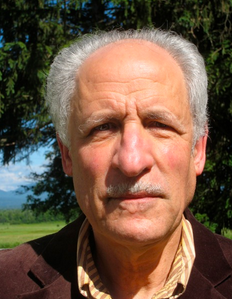Whereas all congressional Republicans like extreme economic inequality, only the richest white male congressional Democrats do -- other congressional Democrats oppose it. That's the general finding in a new study by the nation's leading researcher on the subject of the attitudes of rich and poor people, Michael W. Kraus, along with Bennett Callaghan, one of his graduate students.
Published online at the prestigious science journal PLOS 1, the study, "Noblesse Oblige? Social Status and Economic Inequality Maintenance among Politicians," opens:
"Given that [according to prior studies] high status individuals tend to conceive of the current structure of society as fair and just, we expected that high status members of the U.S. House of Representatives would be more likely to support economic inequality in their legislative behavior than would their low status counterparts. Results supported this prediction particularly among Democratic members of Congress: Whereas Republicans tended to support legislation increasing economic inequality regardless of their social status, the social status of Democrats -- measured in terms of average wealth, race, or gender -- was a significant predictor of support for economic inequality."
This study closes by discussing an unanswered question: "It is interesting to speculate about the reasons why status did not influence support for economic inequality among Republicans," and it refers there (without comment) to a May 2009 study by other researchers, "Liberals and Conservatives Rely on Different Sets of Moral Foundations," which found that, whereas the three values of loyalty, hierarchy, and religiosity, dominated amongst conservatives, the two values of helping and fairness were the chief concerns of liberals. Obviously, such findings lend support to an ideological explanation.
Anyway, from the current study, one can reasonably conclude that all Republican politicians, and even a few rich white male Democratic politicians, want government most to help the most, rich white males, but that the others want government mainly to help the most, non-elites. Or, to make it short: In America, the more that you vote for conservatives, the more that government will help rich white males, and the less it will help everybody else, so that the more of your tax dollars will go to rich Whites. But otherwise, your tax dollars will help poor people the most. Of course, people who don't want any government (they say "it's all mine": everything should be only privately owned) can go to places where government is the weakest, like Somalia, places that most closely approximate such anarchy. But for people who don't do that, a choice inevitably presents itself: shall government help the elites the most; or should it help the non-elites the most? If one wants government, one is therefore inevitaby going to choose between fascism (government for the elite), versus democracy (government for the public). There is no way to avoid this choice at the ballot box, except to leave for a country where voting makes no difference at all.
So: this is an interesting study.
----------
Investigative historian Eric Zuesse is the author, most recently, of They're Not Even Close: The Democratic vs. Republican Economic Records, 1910-2010 , and of CHRIST'S VENTRILOQUISTS: The Event that Created Christianity .




